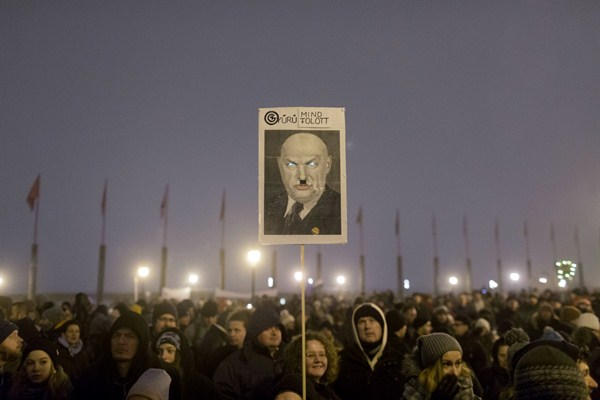Protests sparked by a new law that allows employers to demand 400 hours of overtime from workers each year, which critics have dubbed the “slave law,” have put Hungary’s disparate opposition parties side by side on the streets and in parliament. They need to expand this cooperation if they’re going to mount a serious challenge to Prime Minister Viktor Orban’s corrupt, authoritarian government.
Passed in December, the “slave law” would essentially move Hungarian workers to a six-day work week, with pay postponed. The measure is Orban’s way of softening the effects of a severe labor shortage for multinational corporations, with which he maintains close relations, without backing down on his anti-immigrant crusade, the cornerstone of his domestic political support.
Not for the first time, however, Orban’s confidence has tricked him into pushing the limits. More than once since taking power in 2010, he has climbed down on specific issues that have brought Hungarians into the streets. But now there’s a risk the opposition could unify and mount a more concerted challenge to his power.

